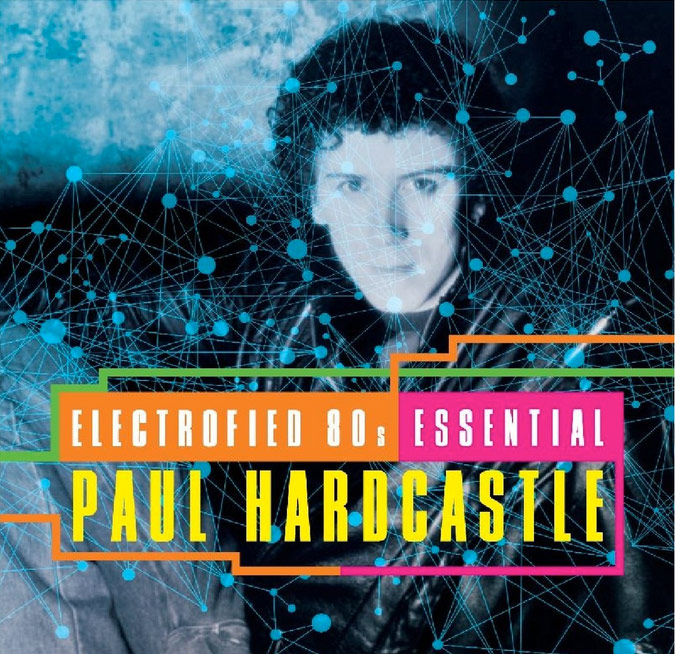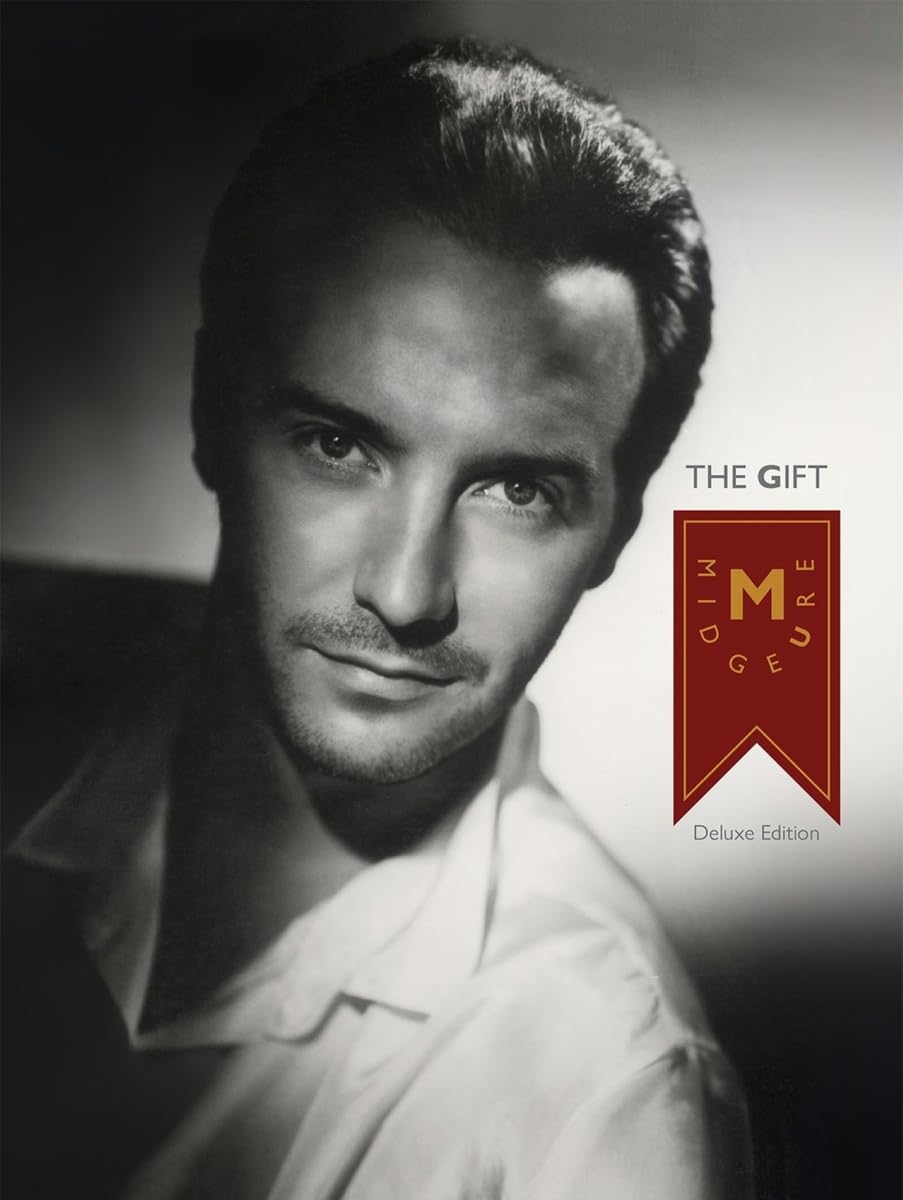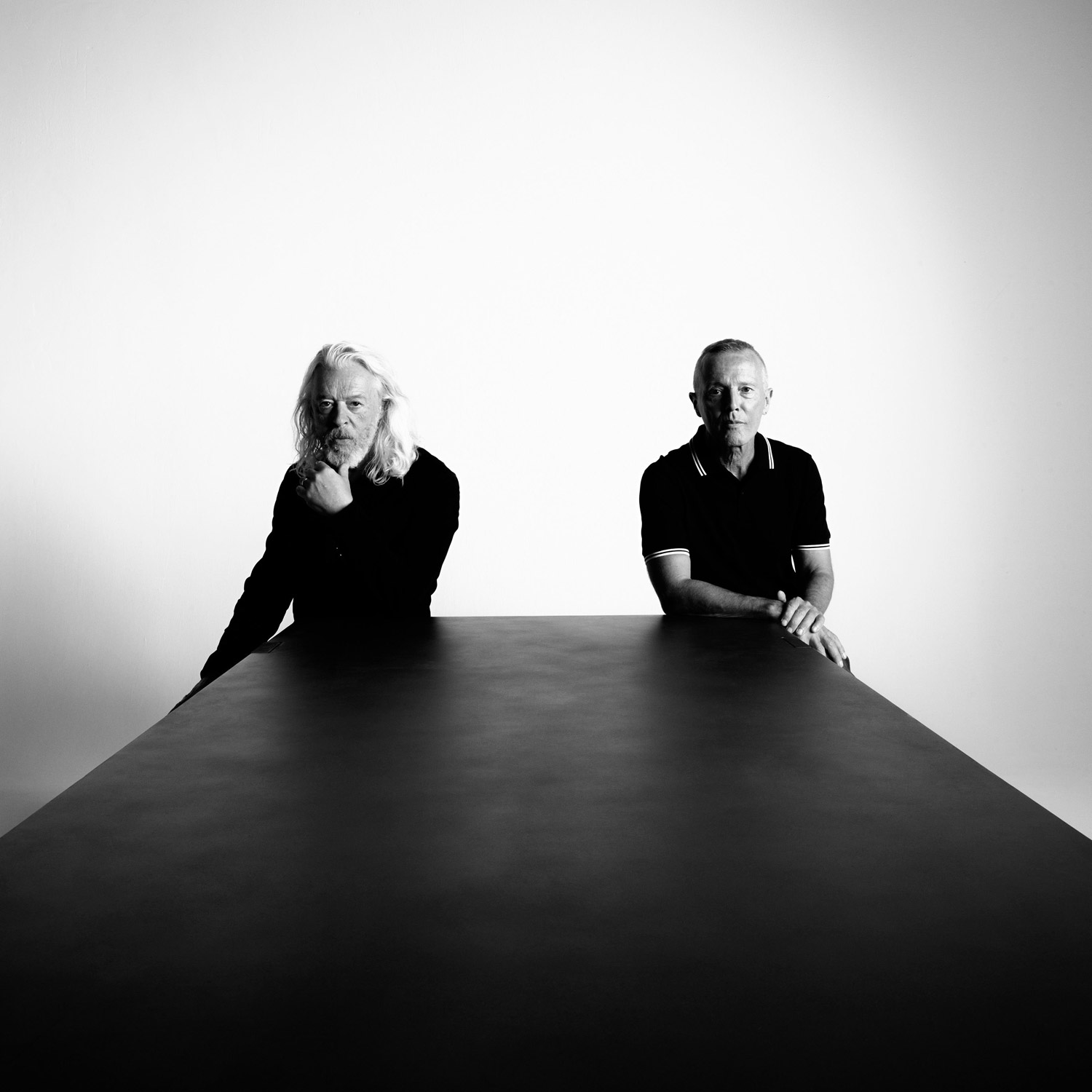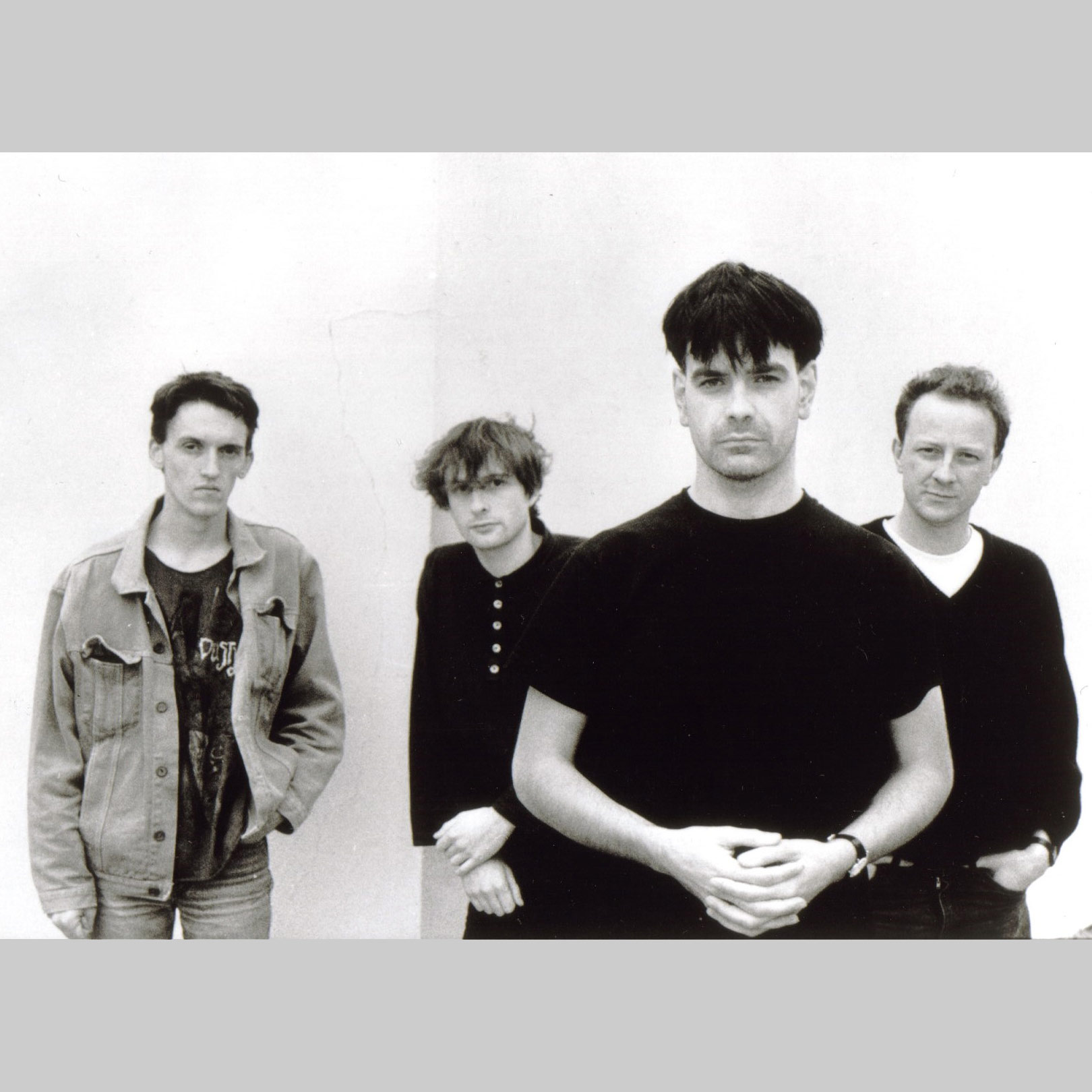Paul Hardcastle / Interview
Paul Hardcastle is a artist, songwriter and producer who has been making music for the last 30 years. He started out in the electro/dance sphere, and in recent decades, his musical journey has led to him more of an ambient, smooth jazz sound, evident on last year’s 19 Below Zero album.
There have been plenty of diversions and collaborations along the way, with Hardcastle often recording under aliases, to avoid contractual problems. He is best known outside the US for his enormous hit single 19, which reflected on the plight of veterans who served in the Vietnam War in the late 1960s. It would reach number one in 13 different countries around the world.
Demon Music Group through their Music Deluxe imprint, released Electrofied 80s: Essential Paul Hardcastle at the end of last month. This two-CD retrospective highlights some of Hardcastle’s best work with much focus on the music produced in the 1980s-era.
We recently caught up with Paul and spoke to him about this new release…
SuperDeluxeEdition: How did the new compilation come about?
Paul Hardcastle: Demon Music contacted me to say they were interested in getting together a compilation of my old electro and ’80s type of stuff, and to be honest with you, I thought that’s would be great, because number one I’d have a CD of all my stuff (laughs).
SDE: Obviously, 19 is what you are best known for..
PH: Well that, and Rainforest even more so in America
SDE: Yes, that did well on the Billboard Hot 100, didn’t it?
PH: On Cashbox, which was their other chart at the time, it was number one. I think it was number four R&B and on the 12-inch sales charts it was number one, because it relieved Madonna of the number one position on that chart, which I’m very proud of! (laughs).
SDE: So when the success of 19 happened, it wasn’t a new thing for you to travel and promote a successful record?
PH: No, but to be honest with you, it was a totally different thing because 19 was a number one in my home country, which just meant so much to me, I think. It was great. I don’t know how much you know about my career at the moment, but up until now, in America I’ve sold in excess of four million albums on this smooth, chill type of thing I’ve been doing for the last 10 or 12 years. My new single is actually number 10 on that chart this week, so it looks like – or everybody is telling me – that it’s going to be my twelfth number one, so I’ll be able to put an album out of number ones (laughs). It’s quite crazy really, because I’ve never been one to go chasing the charts, but it’s just happened, which is great.
SDE: Getting back to 19, when you were in the studio completing that track, was there a buzz? An acknowledgement that it was going to be massive?
PH: It was just another track that I listened back to. What happened was I did it – it was actually done in my house in Leytonstone (East London) – and I went out for a little while, and when I came back to listen to it I’d totally forgotten about the stutter [n-n-nineteen] and when it came in, I thought oh shit, that’s catchy! It takes that sometimes when you’ve been working on something for so long, and when you hear it in a fresh light… it’s like when you hear your music on the radio, it always sounds better, because you’re not expecting it to come on. So as I say, I came back, I heard it, and I thought this is different, this is totally different. I didn’t know it was going to be a hit, not at all. I took it in to the label, and they all laughed. You know, what are you bringing us this thing for?
SDE: So even the label weren’t enthusiastic?
PH: Oh, god no! It was only Simon Fuller who went ‘I think this could be a hit’. When someone backs you up like that it gives you a bit of a vibe, so we said okay, let’s go for it. So Simon said I tell you what, why don’t I become your manager, I’ll leave Chrysalis…
SDE: I see, so he wasn’t managing you at that time then?
PH: No, he was working for Chrysalis. So he took a bit of a risk and walked out of his job to manage me, but lucky for him, three or four weeks later we were number one in thirteen different countries, and were on top of the world. It was crazy.
SDE: And how did the idea for that track come about, did you want to do something with voiceovers?
PH: No basically, I was just watching a programme on TV – Vietnam Requiem – I taped it on a Betamax, and I was watching it back and just thought, Jesus Christ these kids are young, and that was the thing that stuck in my brain, how young they were. So I thought I wonder if you could make this into something – I classed it as a ‘musical documentary’. So I tried it, and you know what happened, it was just one of those things that worked.
SDE: There were many remixes of the track, The Destruction mix, The Final Story, The Extended mix etc. Was that a case of the label saying you need to go back and do another version, because we want to keep this at the top of the charts, or were you quite interested in doing it yourself anyway, redeveloping it further?
PH: I loved doing the destruction mix. What happened was when we made the original record, we got in touch with the people that made that TV programme (Vietnam Requiem) and they made the video for me, and I asked if we could get the tapes from the show because there might be bits of speech in there, without background noise. If you listen to the original, there’s a bit where it says ‘None of them received a hero’s welcome’ and there’s a trumpet in the background, and I couldn’t get rid of that trumpet. So I got the tapes and I was then able to really dissect it properly and put totally different bits in there. I liked doing it. And it was quite funny, because at the time Duran Duran were number two [in the UK Charts] and they were really breathing down my neck, and don’t forget they had a massive film behind them – A View To A Kill – so there’s no way I could fight that, but then I thought, hang on a second, if I do another remix…. (laughs) It pissed off Simon Le Bon a bit, but there you go. Hard luck! (laughs)
SDE: That’s right – A View To A Kill was number one in the US, but peaked at number two in the UK, so that was your fault, basically.
PH: It was my fault, I take full responsibility, and I love it (laughs)
SDE: How aware were you of the wider cultural impact of that track? As an example, the video was show in my twentieth century history lesson at school.
PH: Wow. The first I saw of that was when I saw that the lyrics were in a school curriculum poetry book. That made me think, “wow”.
SDE: Mike Oldfield is always going back and revisiting Tubular Bells. Do you feel like that with 19? Is it one of those things, where it’s hard to stay away from it? I know you reworked it again recently on your 19 Below Zero album.
PH: I’ll never go back to it again. It’s done. I think I’ve got the best out of it I possibly can. I’ve had lots of [other] people remix it. People on the Pacha label, but to be honest with you – and it’s not just me saying this – everyone always says no one has ever come near the original. I think I got very close with the version that’s on 19 Below Zero. I felt that was a really strong version, and a lot of people have said that it is on par with it [the original]. I take on board what people say to me. When my fans say ‘listen, not sure about that one…’, I actually really do listen.
SDE: Some of those 19 remixes might be on the odd compilation, but I’m surprised you’ve never put together a mini-remix album with all those original mixes. I remember you on Going Live [BBC Saturday morning pop music show of the era] at the time 19 was out and you pressed an exclusive 12-inch vinyl as a prize giveaway with all the remixes on it …I was envious.
PH: …It was called 19 minutes of 19, wasn’t it?
SDE: That sounds about right… but how come a CD compilation has never come out? I’m sure there would be a market for it?
PH: Do you know something, with all the remixes I’ve got now, I could do an album’s worth of them. I have been thinking about that, especially the ones on 19 Below Zero. Some of those mixes are only on download. But yeah, totally. I reckon I’ve got enough to do a four album set (laughs).
SDE: Although the 19 Below Zero mix, I agree, is a great version, all those original versions have a great nostalgia element to them. I think The Final Story mix, an edit of it, ended up on a CD single back in the day…
PH: …Yes it was on the back of 40 Years [1988 single], I think.
SDE: That’s right, but I remember being quite upset that it was only an edit. That was probably because they [the UK chart regulators] were always mucking around with rules and restricting the running time on CD singles.
PH: (laughing) That’s it. You’ve hit the nail on the head. That’s why we couldn’t put it on there. I would have to look and see where the original masters were, but Chrysalis will own them.
SDE: Do you regard 19 as a badge of honour, or an albatross around your neck?
PH: I’ve got no problem at all with 19. If you think about it, when someone tells you not to do something, and tells you it’s not going to work and when it has done, you think I’m so glad I stuck to my guns. You learn to be proud about that and I’m still totally proud of what I did with that track.
SDE: And you could laugh about it too, because at the time you got involved with the spoof record N-N-Nineteen Not Out. I notice that hasn’t appeared on your new Electrofied ’80s compilation ?!
PH: (laughing) Christ almighty, you’re right there. It took a lot for me to admit it! Listen, it was a bit of fun. I was speaking to Rory Bremner [well known UK impressionist] and it was a very funny concept he came up with and we’d had a few beers and thought let’s do this thing. And we did it, and it was a top ten record [actually peaked at no. 13]. It was a bit of fun, but Chrysalis said you can’t admit to this, because you’re making a serious record and you’re going back on it. And I’m thinking, you know, get lost. It’s just a bit of fun, mate. If I can’t laugh at myself… so we did it!
SDE: Yes, I remember it well..
PH: Oh, it sounds shit now, you can quote me on that. I’m being honest with you. It might have been funny at the time, but now it sounds awful.
SDE: On this new compilation you have the theme to the BBC travel programme Holiday. Presumably that was written to a brief, rather than you having already written that music?
PH: Basically, they said could you come up with a theme tune for us, for Holiday. I asked what they were looking for, and they said we’re sure whatever you come up with will be alright. So I gave them it and they said fantastic! It lasted for about eight years.
SDE: You also wrote The Wizard for Top Of The Pops. Do you enjoy the process of being commissioned to write something?
PH: I do when you’ve got sensible people talking to you. But normally what they’ll say to you is ‘we want it like this’ , and what you have to do is to take no notice of them whatsoever and do something totally different, and it’s normally right. When you do what they want, they go ‘erm, yeah, not sure..’ and you say ‘well that’s what you asked for’ and they go ‘yeah… but…’. So now I just go and do whatever I want, if I do those things. I did one for The Clothes Show. They asked me for something and I did it totally differently, and they loved it. I did it for Wildlife On One, and they asked for one sort of thing, and I actually gave them a track without any human element to it at all. It was the sound of animals, a frog sound for the bass drum, some strange wild birds from Africa that sounded like a trumpet. They used it and it won an award!
SDE: So you’ve done quite a bit of TV work then?
PH: Yes I’ve done loads of it. I did stuff on the S-Club 7 series, The Spice Girls Movie, I wrote the score for that, so yeah, I’ve done quite a lot.
SDE: You’ve got the Deff Boyz track on the compilation (Swing). I was amazed that was you – how did that come about?
PH: We sampled… erm I can’t remember which record it was, but it had a great groove. I got involved with this rapper, this guy called Tony Mac, and I said to him, come over I’ve got this really good idea. So basically, we put it out and I had loads of labels asking me to licence it, and it was a massive hit in Germany. But I had to do it under a different name, for contractual reasons with Chrysalis at the time – that and the Silent Underdog, the Papa’s Got A Brand New Pigbag record (laughs). I like to do things a bit incognito, sometimes!
SuperDeluxeEdition Readers’ question: Which was the bigger buzz, having the theme tune for Top Of The Pops or having a number one with 19?
PH: Having a number one. It’s very hard to beat that when suddenly you’re number one in your own country. With 19 in America, the only reason it didn’t go to number one on the pop chart there was because of radio play – they have the sales and radio play mixed up. Five weeks solid I actually outsold anyone else in America with that record, but it never made it over there because of the airplay side of things, so that was a real strange one. I like to get that off my chest! It was thought to be anti-American, but it wasn’t. I didn’t go over there and say, America you’re a load of tossers! It was just, look how young these kids were, that’s all it was.
SDE: Speaking of number ones, do you think it’s all been a bit devalued now, having a number one in the UK?
PH: Totally. Listen, it would be fun, but it wouldn’t mean anything like it did at that time, when you had Top Of The Pops on, and stuff like that. It really meant a lot if you were number one, or even if you got into the top 40. Now you can do that on 5,000 downloads, or whatever. It still means a lot to me having a number one in America, because I know it’s going to sell the album, that’s the main thing.
SDE: A lot of artists are now struggling with making a living out of selling records, the way the music industry is, and they now do that by touring. How does that fit in with what you do?
PH: I still sell records – I’m lucky. I’ve built up a great fan-base over the years, and most people have got all my albums, – there must be around 20 in total and many have bought the lot. With a good fan-base, when you make albums that people like, they’ll buy it come what may. And I don’t put fillers on it, that’s the other thing. I won’t do it.
SuperDeluxeEdition Readers’ question: Do you think the 1980s was a golden age for electronic pop?
PH: Yeah, I think that was the start of all the sampling, and obviously I was involved in that. And also synthesisers were become better, and even Bowie started to get into that side of things, you know. You had some great innovative people, like Thomas Dolby, so I think it was, yes.
SuperDeluxeEdition Readers’ question: What is your favourite version of 19?
PH: I would say the Final Story mix from the time, and the 19 Below Zero mix from last year. With the recent one, I spent a lot of time thinking about it and thought this is one last chance to make it really poignant. I did a version back in 1995, but if I listen to it now, I’d say it’s alright, but it’s nothing to write home about. But no, definitely that one [19 Below Zero].
SDE: On this compilation, you’ve got a 2011 version [in addition to the standard single mix] with references to the war in Afghanistan. That’s a different version again…
PH: It is. To be honest with you I just put that on there because not many people have heard that because we had quite a bit of trouble with radio on that version.
SDE: Paul Hardcastle, thank you.
Paul Hardcastle was talking to Paul Sinclair for SuperDeluxeEdition. Electrofied 80s: Essential Paul Hardcastle is out now.

 Interview
Interview




By Paul Sinclair
5